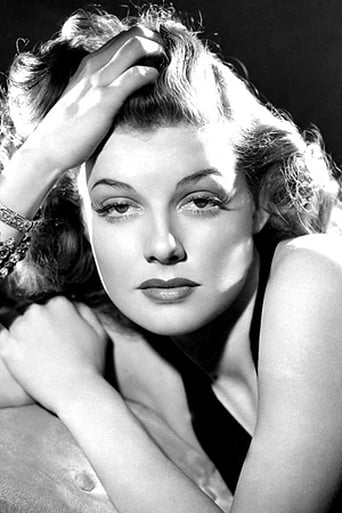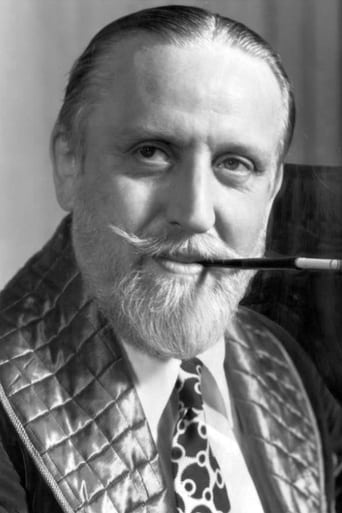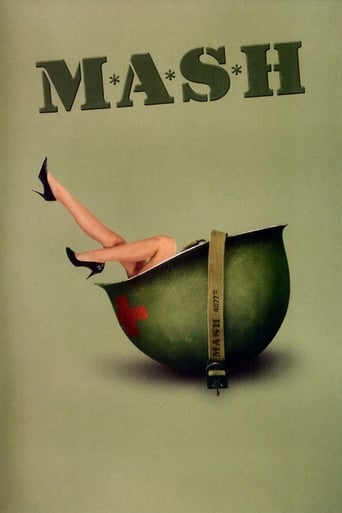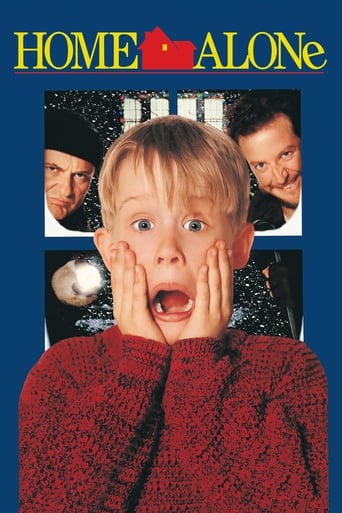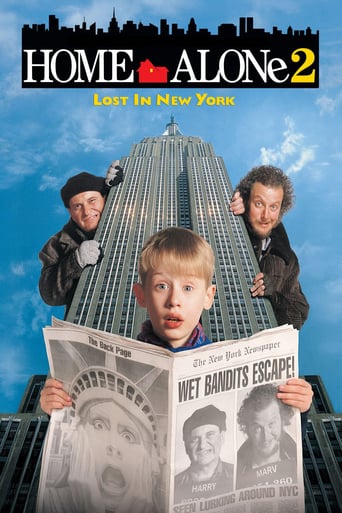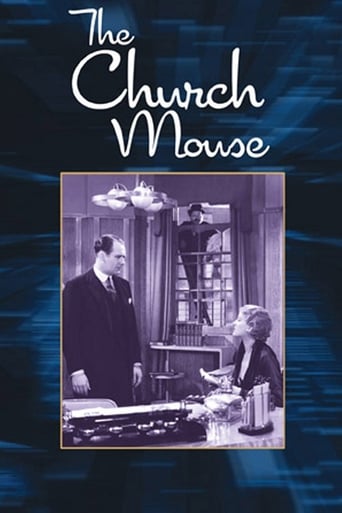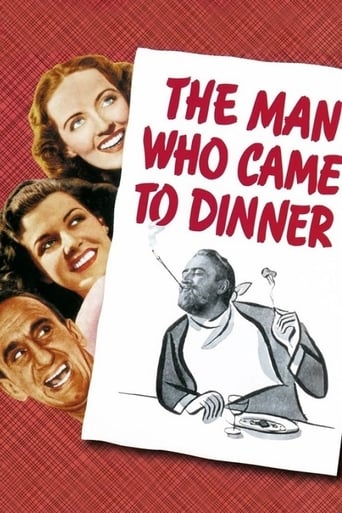
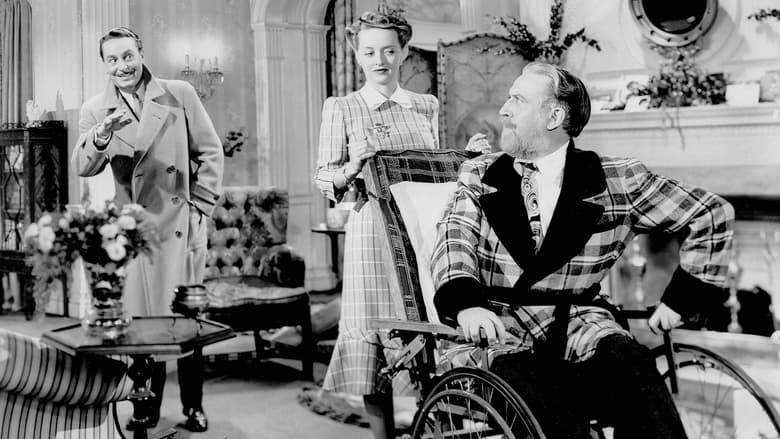
The Man Who Came to Dinner (1942)
An acerbic critic wreaks havoc when a hip injury forces him to move in indefinitely with a Midwestern family.
Watch Trailer
Cast
Similar titles

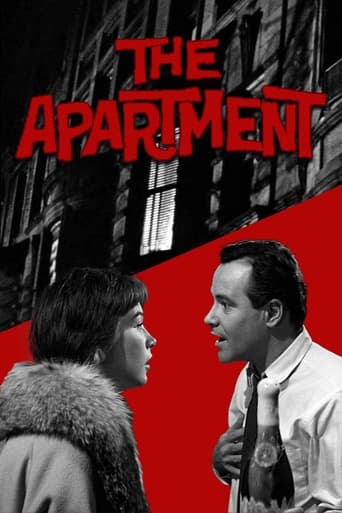


Reviews
Wonderful Movie
Nice effects though.
Just perfect...
It’s fine. It's literally the definition of a fine movie. You’ve seen it before, you know every beat and outcome before the characters even do. Only question is how much escapism you’re looking for.
I will admit that I was disappointed with "The Man Who Came to Dinner". I was expecting the humour to be a little dated, with lots of the hammy delivery, 'double-takes', and 'slow burns' that were a staple of comedies of that era, but I was also expecting the witty and sparkling dialogue that characterises the best of the genre (1934's "The Thin Man" being a good example). While Sheridan Whiteside (Monty Woolley) had lots of acerbic one-liners, most of the other characters simply served as targets, so there was not much of the 'give and take' repartee that can really liven up this kind of stagy story. Not surprisingly, Jimmy Durante 'over-the-topped' his manic 'Banjo' role while, on the other hand, Bette Davis was moderately restrained, playing a role than any Hollywood ingénue could have handled. The rest of the ensemble cast was fine, especially Anne Sheridan as a sultry parvenu from Kansas, character actress Mary Wickes as Nurse Preen, and Reginald Gardiner as Beverly Carlton (whose 'upper class twit of the year' impression was a highlight (IMO)). The broad-comedy bits (e.g. the arrival of penguins, octopi, etc. at the Stanley's besieged home) just seemed contrived and ridiculous and did a lot to lower my overall opinion of the film. All in all, I was underwhelmed but comedy is a very personal taste, so take my comments as opinion, not recommendation. Note: the script name-drops a 1940's 'who's who', so some viewers may want access to Google while watching (Zazu Pitts or Walt Winchell jokes being bit obscure these days), but I doubt that I'd want to watch an updated remake (on stage or film) – a phone call from Eleanor Roosevelt seems inherently funnier than a phone call from Melania Trump.
Not only is the main character completely obnoxious and annoying, but the stage-originated and stagy plot doesn't work at all. It's so implausible that I wouldn't even know where to begin, so I'll pick one glaring mistake (or oversight) at random. When Jimmy Durante's character locks Ann Sheridan's character in a mummy case, she ought to be pounding and screaming to be let out, but she doesn't make a sound! The whole film is full of gaffes like this; and besides, you know the comedy is failing when the writers think that they have to throw in a flock of penguins for a (hopefully) sure-fire laugh.Sheridan Whiteside's supposedly "witty" lines all fall flat; I didn't laugh even once. If this is supposed to be "sophisticated" 1940's humor, I'll stick with the Marx Brothers... or even the Three Stooges! Not only that, but it goes on much too long; it would have benefited from a cut of at least ten minutes, just to improve the snail-like pace of the plot.It's hard to believe that so many big-name actors and writers were involved in this prize turkey, or that it was a hit in 1942. I guess that wartime audiences were desperate for entertainment. Any entertainment, however flimsy it might be.
The Christmas season would be nothing if it weren't for its movies. Indeed, gearing up for the big day with movies celebrating the cheer, zaniness, or headache that it brings are as time-honored as picking out the proper tree, baking cookies, or wrapping presents; it's one of our favorite Yuletide pastimes. The 1940s gave us a cinematic stocking stuffed with goodies that have endured as some of our most cherished annual classics: THE SHOP AROUND THE CORNER, HOLIDAY INN, IT'S A WONDERFUL LIFE, and MIRACLE ON 34TH STREET, among others. Another great seasonal helping from this time period is the often overlooked but scathingly brilliant THE MAN WHO CAME TO DINNER. Famed theater critic, radio personality, and all-around celebrity Alexander Woollcott certainly ensured that his far-reaching influence would be imprinted in the movies. Before serving as the impetus for the coveted character of Addison De Witt that won George Sanders an Oscar, he served as the focus for a play penned by theater luminaries George S. Kaufman and Moss Hart (Pulitzer Prize winners for "You Can't Take it With You".)As the story goes, Woollcott demanded of Kaufman and Hart (who were close friends) that they write a play with him as its subject. The task proved unlikely until Woollcott one day showed up unannounced at Hart's estate, where he proceeded to commander the house by taking up station in the master's bedroom and terrorizing the staff. It didn't take H or K long to realize they had a hit.After declining their offer to play himself, H and K cast Monty Woolley in the role of Woollcott, renamed Sheridan Whiteside. Woolley was a former teacher at Yale who dabbled in acting and later radio. One in attendance for the play's enormously successful run was Bette Davis, who immediately returned to Hollywood with idea to have the play adapted to the screen. She was ecstatic about playing the atypical (for her) role of Whiteside's demure (yet quick-witted) secretary, as long as it meant acting alongside John Barrymore in the role of Whiteside. Barrymore showed interest and auditioned, but his ailing health and poor memory led to his displacement, allowing Woolley to reprise his Broadway triumph. Cranky author and radio personality Whiteside is giving a Christmas lecture tour. In a small Ohio town, he reluctantly accepts the invitation to dine at the affluent home of the Stanleys. A slip on their icy stairs, however, leaves him with an injury that he decides to milk for all it's worth. Taking command of their living quarters, he barks instructions and makes lofty demands. Along the way, he meddles in the affairs and love lives of everybody, including his loyal but droll secretary. As Christmas rapidly approaches, it appears that the Stanleys will have one more guest for the festivities...or they'll be the unwitting guests attending!THE MAN WHO CAME TO DINNER, adapted by the brothers Epstein (Julius and Philip), is characterized by its rapid, knife-edged wit. I mean lethal wit. The kind of wit that would whither J.J. Hunsucker. Whiteside is acid-tongued and relentless, flinging off zingers for every situation and at the expense of everybody who gets in his cantankerous path. The witticisms are sharp and outrageously clever, with a mordancy that borders on contempt. Whiteside is determined to not only be an unpleasant pin in the sides of his overwhelmed "hosts", but an unbearable pain in their behinds. Aside from his verbal executions, Whiteside turns the house upside down in a series of nonstop gags...he invites convicts to lunch, has a crate of penguins delivered so they can run amok, and converts the library into his private news sanctum from which he can issue his annual radio Christmas broadcast. Aside from Woollcott, other famed personalities appear as friends and acquaintances of Whiteside in thinly-veiled characterizations who drop in at their convenience and add to the mayhem. Jimmy Durante is Harpo Marx, Reginald Gardner is Noel Coward, and Ann Sheridan is Gertrude Lawrence (the latter bares her claws as she tries to steal the object of Davis' affections.)The major complaint I've encountered about THE MAN WHO CAME TO DINNER is that "it's too dated", and the humor is too period-trapped that it ceases to be relevant. The jokes are largely topical, true, referencing persons that would leave most people nowadays scratching their heads. However, I can't imagine anybody who appreciates well-constructed screen writing and intelligent humor to be put off by this. If anything, THE MAN WHO CAME TO DINNER serves as a reminder that humor was once approached with sophistication and worldliness. Some even accuse it of being too "mean-spirited" for a Christmas film, epitomized by the selfish and acerbic Whiteside. I think that's a ripe exaggeration, and besides, its sharp nature is what appeals to me. It's a fresh alternative to the typical Christmas film.. My only caveat is the "kooky step-sister" angle, which is not only crude, but it's only purpose is to function as a deus-ex-machina (it does provide the film with one of its best punchlines, however.) If you're as big a fan of dialogue-driven films as I am, and can appreciate a movie that dispels with the typical holiday fare in favor of smart albeit wicked humor, then THE MAN WHO CAME TO DINNER oughta be a dish digested with the rest of your Christmas banquet.So grab some thick eggnog and extra-hoppy beer, and enjoy a riotous double-bill with another "dark" perennial favorite of mine, THE REF. Cheers!
In Mesalia, Ohio, the president of the local women's club Mrs. Ernest Stanley (Billie Burke) is the wife of the prominent ball bearings manufacturer Mr. Ernest Stanley (Grant Mitchell) and she is in rapture since the famous lecturer and critic Sheridan Whiteside (Monty Wooley) will have dinner with her family.When Whiteside arrives with his secretary Maggie Cutler (Bette Davis) at Stanley's home, he slip on the ice on the stairway n the front door, he breaks his hip and the diagnosis of the local Dr. Bradley (George Barbier) requires that Whiteside shall stay in a wheelchair confined in the house. The egocentric, selfish and despicable Whiteside demands the control of the entire house and tells that he will sue Mr. Ernest Stanley in an exorbitant amount.While the family lives hell on earth in their own home, Maggie falls in love with the owner of the local newspaper Bert Jefferson (Richard Travis) and quits her position. However, the abusive Whiteside invites the vamp actress Lorraine Sheldon (Ann Sheridan) to meet Bert expecting that she seduces him and Maggie stays with him.I had the greatest expectations with "The Man Who Came to Dinner" based on the name of my favorite actress ever Bette Davis and the IMDb Rating of 7.6. Unfortunately I found this film dated and unfunny, and even overrated. I did not find the abusive behavior of Sheridan Whiteside funny in any moment and his deplorable attitudes are actually nasty. The fool Mrs. Ernest Stanley may deserve part of the cruelties for her silly behavior but anyway I did not laugh while watching this comedy. My vote is five.Title (Brazil): "Satã Jantou Lá em Casa" ("Satan Had Dinner at Home")

